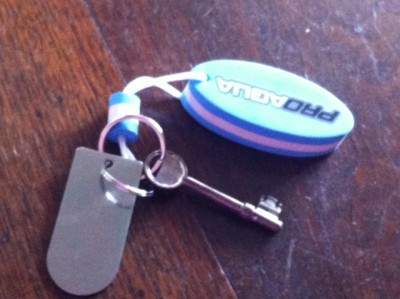
The Myth of Being Certain
“To be doubtful is uncomfortable to be certain is absurd.”
Voltaire to Frederick 2nd of Prussia 4:6:1761
A good few years back when I was having a particularly difficult time about being certain about some things my father gave me a small card with this quotation on, which I still keep in my purse.
It was one of his favourites, and helped me to see how our wish for things to be certain in life is, as the quote says, pretty absurd. And of course the reason why we would like it to be so lies in the first part of the sentence – it can just feel so uncomfortable to sit with doubt.
What I find fascinating is that the quote was from 1761 – and here we are in 2015 often finding doubt and uncertainty just as uncomfortable! You’d think we’d have got better at it somehow!
Fast forward and one of my favourite quotes now is from Tony Robbins who pioneered my training in Strategic Intervention:
“The quality of your life is in direct proportion to the amount of uncertainty that you can comfortably live with.”
So, if that’s still the thinking all these years on, I thought it would be useful to share some thoughts on how we might get better at achieving this.
Make friends with uncertainty
Knowing that nothing is certain (except death and taxes as the old expression goes) can immediately take the charge out of most situations. So, rather than fight it, just get good at noticing when the need for certainty arises and let it come and go. Often uncertainty is just the egos way of keeping you safe so just acknowledge what’s happening, and then focus your thoughts onto something else.
This too will pass
Changes of any sort can quickly throw up all sorts of uncomfortable feelings and a rush to control them to feel certain. Just repeating the words “this too will pass”, or any form of words, that act as a trigger to feeling calmer again can quickly put you in a more resourceful state.
Get good at meeting your own needs for certainty
A good way to cope in times of uncertainty is to have things you can think of, or physically do, that immediately make you feel more secure, and give you your own sense of certainty, regardless of what’s going on around you.
And, even more importantly, is for those things to be within your control rather than relying on a sense of certainty from other people over whom we have little or no control (given they are individual human beings with their own unique needs at any given time), or from external sources such as our work, which can change at any time.
A good place to start is to think of the times when you’re feeling happy and nothing particular is bothering you – you just feel relaxed and okay with the world. What do you tend to be doing at such times? What’s happening around you? Where are you? Who are you with? Then write down what comes to mind. Often the things we enjoy about our lives are the things that help us feel better in times of uncertainty. This could be anything from:
- taking a walk
- getting out into nature
- listening to some music
- reading a book or a newspaper
- relaxing in a bath
- watching sport
- playing a game
- laughing at something funny
- learning something new or inspiring
whatever it is that makes you feel good.
Expend your energy wisely
So, if you think of all the energy we can put into worrying about things we’re uncertain about that never actually happen 99 per cent of the time, then how much better to get wise to that and, instead, expend that energy on the people and things that matter most to us.
I’ll end on one of my (and also was one of my father’s) favourite times shown in the photo above when I feel especially happy and certain, and that’s when I’m on my annual holiday in Cornwall walking along this cliff path. It always conjures up the same happy feelings, and, as the saying goes, serves as a ‘symbol of stability in an ever-changing world’!





